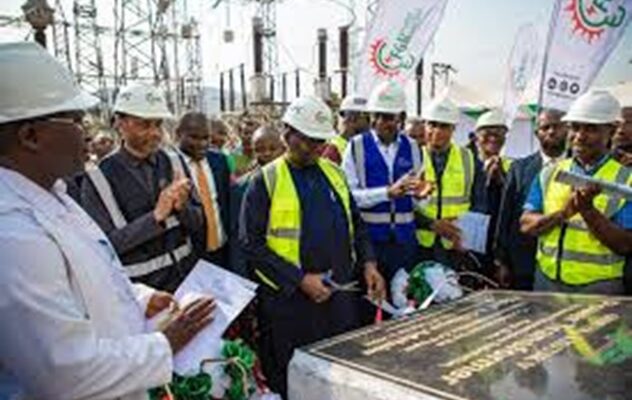- With improved power supply in Kogi State, investments in agriculture and food processing will begin to spiral.
The Minister of Power, Chief Adebayo Adelabu, has inaugurated five projects located in Okene, Kogi State, Amukpe, Delta State, Potiskum, Yobe State, Apo in Abuja, and Ihovbor, Edo State, under the phase one of the Presidential Power Initiative (PPI).
The phase one of the PPI is targeted at increasing Nigeria’s wheeling capacity by 272 megawatts, thus culminating in a more robust delivery of electricity to consumers across the nation.
Speaking at the commissioning of the 60MVA power transformer, Adelabu, said concurrently, the federal government was remotely inaugurating the four additional sites.
“This is why we commend the strides that have been made by the FGN Power Company under the PPI. In particular, the partnership that has been forged with the German government and Siemens Energy which led to the production and installation of these world-class equipment we are commissioning today.
“PPI, I must note, is a strategic and systematic approach to solving Nigeria’s perennial problems of unreliable and inadequate electricity supply. I am delighted that with the German Government’s partnership with the Federal Government of Nigeria on the execution of the PPI, we will be able to deliver reliable power supply to the entire country.
“Mr. President has mandated that we accelerate our agreement with Siemens Energy, and we are currently finalising the scope of that work with all stakeholders,” he said.
Similarly, the Managing Director/CEO, FGN Power Company, Mr. Kenny Anuwe, described the day as historic in the journey to provide Nigerians reliable power supply.
“The PPI has embarked on a noteworthy initiative by deploying 10 power and 10 mobile substations across Nigeria. This strategic move will augment the transmission wheeling capacity, a pivotal component of the current administration’s concerted efforts to expeditiously deliver enhanced power supply.
“Importantly, the deployment of these devices underscores our steadfast dedication to advancing improved electricity access for the people of Nigeria.
“We acknowledge the importance of improved power supply towards the attainment of the present administration’s Renewed Hope agenda and assure Mr. President of our determination to provide all necessary leverage towards the attainment of his administration’s national objective,” he said.
According to him, when, on August 31, 2018, the federal government established the PPI, the underlying objective was to coordinate the partnerships and secure financing for the project that would improve the country’s power transmission, distribution, and generation capacity for the benefit of Nigerian households and businesses.
“Through hard work and driven by an immeasurable sense of patriotism, the Nigerian government was able to reach an agreement with the German government, resulting in Siemens Energy’s emergence as the implementation partner to deliver on PPI’s mandate to modernise and revamp infrastructure in the power sector.
“Partnering with the German Government, Siemens A.G and Siemens Energy, we were able to set for ourselves and our dear country Nigeria, the ambitious task of boosting power supply from an estimated 4,000 megawatts to 25,000 megawatts.
“We are aware of the country’s economic and social potentials and needs. Therefore, FGN Power Company, through the PPI, has laid plans for an even distribution of power infrastructure across all the geopolitical and potential economic power zones of the country,” Anuwe stated.
He argued that with improved power supply in Kogi State as well as in other parts of North Central Nigeria, investments in agriculture and food processing will begin to spiral.
He added: “This administration is setting the course towards economic development, and access to energy is the foundation for job creation and economic growth.
“I am happy to announce that with our partnership with Siemens Energy, we have been able to create more jobs while also delivering capacity building in the area of power sector engineering for Nigerian engineers.”




